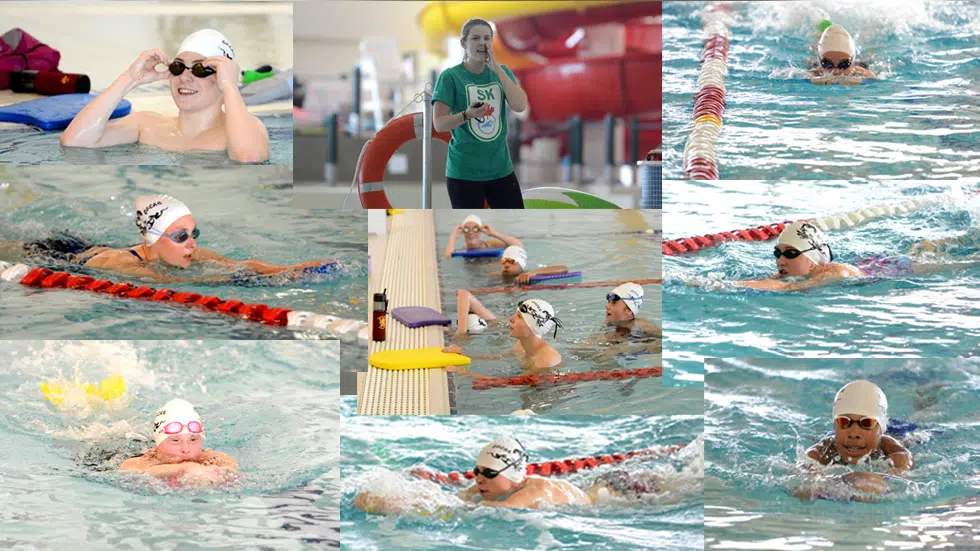
Orcas Swim Club: A window into competitive swimming
Depending on where it is in the swimming season, the Battlefords Kinsmen Orcas swim club can be in the midst of a number of different things.
As it stands right now, things are intense.
That’s because some of their members are getting set for the biggest races in their lives, at some of the biggest competitions in Canada.
Brandon Nord, Taylor Parker, and Lindsay Reimer will compete in next month’s Canada Summer Games (CSG) as members of Team Sask, while Slade Pruden is off to Toronto for the North American Indigenous Games (NAIG) in less than two weeks.


